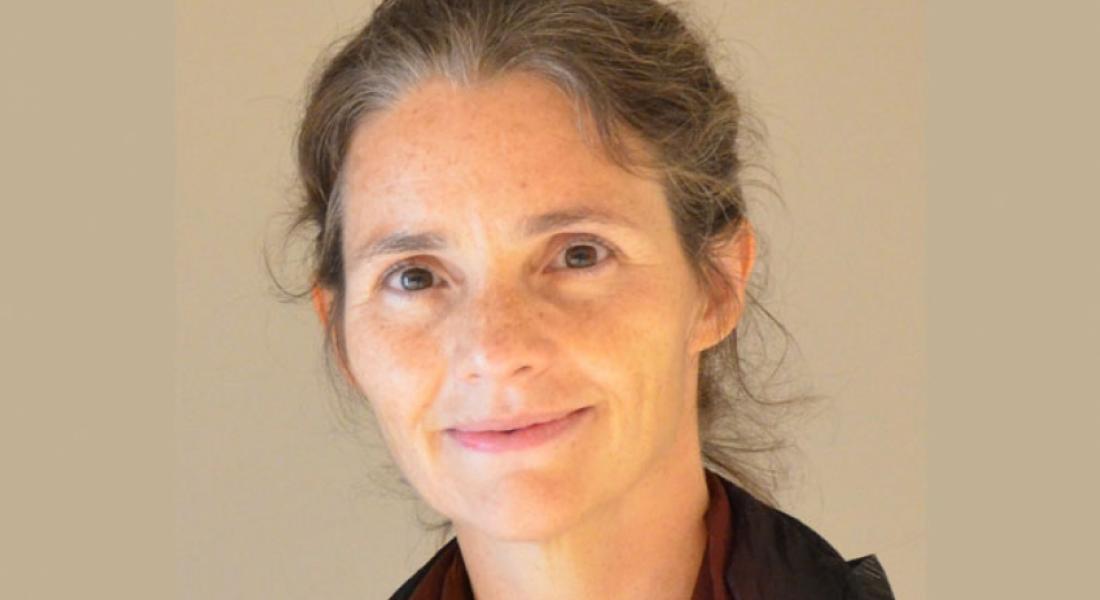
Noted scholar of multidimensional poverty and human development Sabina Alkire has been named a 2017–19 Kellogg Institute Distinguished Research Affiliate in the third year of an initiative to support sustained collaborations between outstanding researchers from other institutions and the Institute’s scholarly community.
An economist, Alkire directs the Oxford Poverty and Human Development Initiative (OPHI), a research center at the University of Oxford. She is known for codeveloping the Alkire Foster Method for measuring multidimensional poverty, which forms the basis of the Multidimensional Poverty Index (MPI) used by the United Nations and governments around the world.
In addition to her work on the methodologies and applications of poverty measurement, Alkire has written widely on the capability approach and human development. She has also been involved in the Institute’s ongoing human dignity and human development initiative.
“We are delighted to welcome Sabina Alkire to a closer relationship with the interdisciplinary Kellogg community,” said Kellogg Director Paolo Carozza. “She is sophisticated in her use of economics on the one hand and of philosophy and ethics on the other, an invaluable combination for Kellogg.
“In her time with us, we are looking forward to exploring how the Multidimensional Poverty Index relates to work we are conducting on integral human development—in particular with the Ford Program, the Kellogg Working Group on Catholic Social Tradition and Human Development, and the Keough School of Global Affairs.”
Sharing a commitment to Institute research themes of democracy and human development, the six Kellogg distinguished research affiliates visit the Institute several times each year during their two-year appointments to meet with collaborators, take part in academic events, and mentor doctoral students. The affiliates nurture new research initiatives with Kellogg faculty fellows, help disseminate Kellogg research across scholarly and policy audiences, and advise the Institute.
Continuing Distinguished Research Affiliates
In announcing Alkire’s appointment, the Institute also announced that two 2015–17 distinguished research affiliates have been renewed for new two-year terms, allowing them to build upon long-term research projects with Kellogg faculty fellows.
-
Clark Gibson ’83, professor of political science and director of the International Studies Program at University of California, San Diego, studies the politics of development, democracy, and the environment. He focuses his current research on accountability between governments and citizens in Africa, especially during the electoral process and in the provision of public services.
A member of the Kellogg Advisory Board as well as a distinguished research affiliate, Gibson is contributing to the new Kellogg research cluster on international education and has advised the development of a Ford Program project investigating Catholic school effects on academic and civic outcomes in East Africa.
-
Bruce Wydick, professor of economics and international studies at the University of San Francisco, uses econometric, experimental, and game-theoretic tools to analyze the impact of development programs.
Currently, he is working with Faculty Fellow Matt Bloom on a study in India investigating the impact of cleft surgery on life outcomes for youth, after completing an investigation in Mexico with Faculty Fellow Rev. Robert Dowd, CSC, on the role of hope in economic development. In addition, he has been involved in the Institute’s human dignity and human development initiative, contributing to its forthcoming edited volume.
Three other scholars, named distinguished research affiliates a year ago, are actively involved with the Institute. They include:
-
Christopher B. Barrett, an economist at Cornell University, is a leading scholar in the field of agricultural and development economics. He conducts research in international development, environmental and resource economics, international trade, markets and price analysis, agricultural production and distribution, and applied econometrics.
-
Stephen Heyneman, based at Vanderbilt University after 22 years at the World Bank, is a well-known expert in the field of international education policy. His research interests include the effect of higher education on social cohesion, the international trade in education services, and the economic and social cost of corruption in higher education.
- Pamela Paxton, professor of sociology and public affairs at the University of Texas at Austin, has worked closely with Faculty Fellow Michael Coppedge in her role as a project manager for the Varieties of Democracy (V-Dem) research team. Her research interests include pro-social behavior, politics, gender, social capital, and quantitative methodology.
For more information on the distinguished research affiliates and the initiative, click here.
The Kellogg Institute for International Studies, part of the University of Notre Dame’s new Keough School of Global Affairs, is an interdisciplinary community of scholars and students from across the University and around the world that promotes research, provides educational opportunities, and builds linkages related to two topics critical to our world—democracy and human development.





